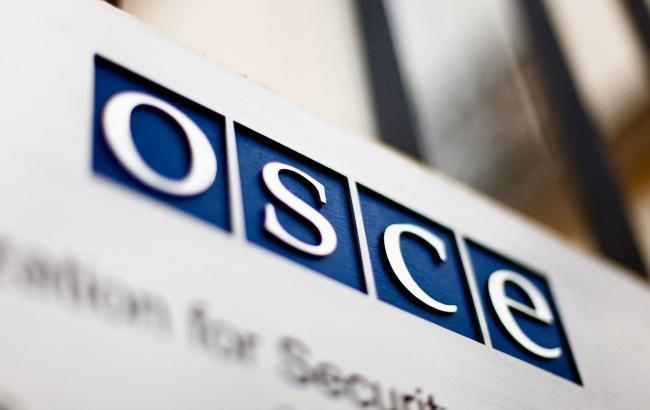Azerbaijani, Armenian FMs discuss Nagorno-Karabakh conflict

By Akbar Mammadov
Azerbaijani and Armenian Foreign Ministers, Elmar Mammadyarov and Zohrab Mnatsakanyan, discussed the next steps in the settlement process of the Nagorno-Karabakh conflict between the two countries in a video-conference held on April 21.
During the meeting, lasting more than one hour and a half, the sides discussed the Nagorno-Karabakh conflict according to the joint statement adopted in Geneva on 30 January of this year.
It was noted during the meeting that, because of the extraordinary situation resulting from the COVID-19 outbreak, the implementation of previously agreed humanitarian measures, as well as the Ministerial meetings and the visits of the Co-Chairs to the region have been postponed. Nevertheless, it was underlined that the necessary work to prepare these activities continues.
The Azerbaijani Foreign Ministry said in a statement published in its official website after the meeting that “Azerbaijan’s position on the settlement of the Armenia-Azerbaijan Nagorno-Karabakh conflict remains unchanged. It is based on the norms and principles of international law, as enshrined in the UN Charter and OSCE Helsinki Final Act and the implementation of the related UN Security Council resolutions.”
“Azerbaijan is insisting that substantive talks must be intensified as there is no way to move out from the situation which region is facing now. The OSCE Minsk Group Co-Chairs are considering the opportunities to move forward the peace process without military consequences,” the ministry’s report reads.
The Co-Chairs of the OSCE Minsk Group that negotiates the Nagorno-Karabakh conflict, Igor Popov (Russia), Stéphane Visconti (France), Andrew Schofer (USA) and Andrzej Kasprzyk, the Personal Representative of the OSCE Chairperson-in-Office, also participated in the online meeting of the two countries’ foreign ministers.
The OSCE Minsk Group published a joint statement in its website on the outcome of the meeting.
“Considering the great challenges now confronting all populations without regard to political boundaries, and which serve as stark reminders of the preciousness of every human life, the Foreign Ministers and the Co-Chairs expressed the hope that the resolve seen in the global pandemic response will bring a creative and constructive impetus to the peace process. The Co-Chairs drew attention to the 23 March appeal by the Secretary General of the United Nations for global ceasefire measures during the current health crisis and to the Co-Chairs' 19 March statement”, the joint statement reads.
On March 19, the OSCE Minsk Group appealed to the sides, saying that despite the heavy restrictions on international travel due to COVID-19 outbreak, the Co-Chairs will continue their mediation efforts without interruption, remaining in close contact with each other and with the sides.
During the meeting, the sides also touched on the importance of observing the ceasefire regime strictly and refraining from provocative actions in the current situation.
It should be noted that earlier Armenia undermined the peace negotiations by holding illegal elections in occupied Nagorno-Karabakh region on May 31. The international organizations, including the OSCE Minsk Group Co-Chairs rejected the so-called elections. The OSCE Minsk Group issued a statement, saying "Nagorno-Karabakh is not recognized as an independent and sovereign state by any of the Co-Chair countries or any other country. Accordingly, the Co-Chairs do not accept the results of these “elections” as affecting the legal status of Nagorno-Karabakh and stress that the results in no way prejudge the final status of Nagorno-Karabakh or the outcome of the ongoing negotiations to bring a lasting and peaceful settlement to the Nagorno-Karabakh conflict".
It should be noted that this year the first meeting of Azerbaijani and Armenian Foreign Ministers with the participation of the OSCE Minsk Group Co-Chairs and the Personal Representative Andrzej Kasprzyk took place in Geneva on 28- 30 January.
Azerbaijan and Armenia are locked in a conflict over Azerbaijan’s Nagorno-Karabakh breakaway region, which along with seven adjacent regions was occupied by Armenian forces in a war in the early 1990s. More than 20,000 Azerbaijanis were killed and around one million were displaced as a result of the large-scale hostilities.
The OSCE Minsk Group co-chaired by the United States, Russia and France has been mediating the Armenian-Azerbaijani conflict since the signing of the volatile cease-fire agreement in 1994. The Minsk Group’s efforts have resulted in no progress and to this date, Armenia has failed to abide by the UN Security Council resolutions (822, 853, 874 and 884) that demand the withdrawal of Armenian military forces from the occupied territories of Azerbaijan.
---
Akbar Mammadov is AzerNews’ staff journalist, follow him on Twitter: @AkbarMammadov97
Follow us on Twitter @AzerNewsAz
Here we are to serve you with news right now. It does not cost much, but worth your attention.
Choose to support open, independent, quality journalism and subscribe on a monthly basis.
By subscribing to our online newspaper, you can have full digital access to all news, analysis, and much more.
You can also follow AzerNEWS on Twitter @AzerNewsAz or Facebook @AzerNewsNewspaper
Thank you!
